Benny Greb on groove
The groovemeister shares his wisdom on the topic of groove

Benny Greb
Benny Greb has steadily built a career as a sideman and solo artist, while also garnering a reputation as a master of groove and a brilliant educator. In 2006, as YouTube swiftly caught on, footage of Benny (YouTube: ‘Benny Greb – Just Groovin’) turned many heads. And in 2009 he released a stunning educational DVD, The Language Of Drumming. As with fellow Eurostars Jojo Mayer and Thomas Lang, it set a new standard in terms of visual quality, taut exposition and faultless logic. A contemporary teaching system with ‘future classic’ written all over it.
Benny was obviously a world class drummer, but he had something else too, a prodigiously deep groove. Thus it is fitting that in 2015 he presents the follow-up DVD, The Art And Science Of Groove – over three hours of advice and practical exercises for improving your groove and feel.

What is groove?
“Some people said you can’t explain [groove], it is mystical… Some even said it’s better not to explain it because then you kill the magic of it! I disagree because I don’t think you can take away magic with knowledge.
“Groove is different from other subjects in that you can’t communicate it through notes. So then 50 percent of educators shy away from it! And there are different aspects and if one is missing then [the whole] is weaker. Normal education only focuses on the time aspects, like playing to a click, subdivisions and tempo. That is important, but it’s not the only part. I heard recordings of myself where the tempo is nice, subdivisions nice, all accurate, but there is still something missing. So what is that? I figured out there is this feel aspect. So how can I get a grasp of that?”
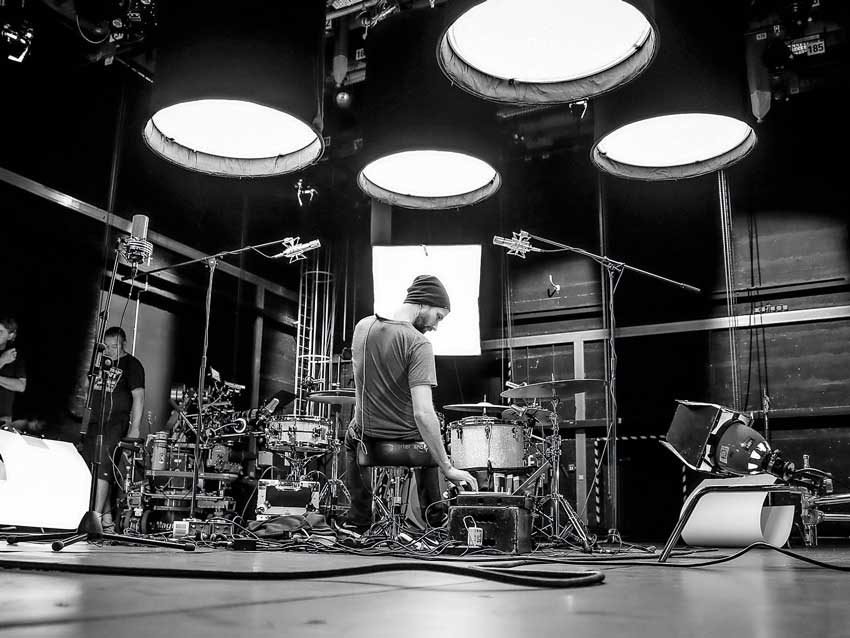
The What And The How
“I always think there are two levels of music: the repertoire, and the quality of the repertoire. For me The Language Of Drumming was about repertoire and vocabulary – the ‘what’. And with The Art And Science Of Groove now there’s the ‘how’ - how do you make it sound and feel good.
"Sometimes you can have all the ‘whats’ correct and if you don’t have the ‘how’ it is worthless. Most education concentrates on the ‘what’ and leaves the quality, because ‘you can’t teach it’. It got on my nerves that no one talked about this groove and quality element. Or if they did it was, ‘Yeah-yeah, this is just something you have to keep an eye on and you have to practise with the click… But now here’s the sticking!’ Oh my god! Not again! So I also see it as a counterbalance to a lot that is out there.”

What is 'feel'?
“[Feel] is more complicated to explain and teach because it’s an experience you have to feel yourself, to diagnose yourself: whether it is there or not. Many people think that if everything is perfectly in time that is it – but that is not always the case. Where does groove really come from and what is it? It’s a feeling that can be established through a certain phrase, important and unimportant notes, tension and release, and through [correct] breathing.
“You still have the whole ‘ship’ [groove] with everything in it, but you have to have the main guy who is driving it (eg: the ride cymbal in jazz). I wanted to make the point – it is not that if you play jazz, say, this way or that way, that that is a bad thing, or a bad ‘captain’. No, in another context it will be perfect. Tools that sometimes destroy something are not bad tools, but they may just be wrong for that job. You can make a groove sound like a different style completely. Even someone who does not know anything about music will say, ‘Ooh, that doesn’t sound like jazz.’"

Body awareness and posture
“Sometimes drummers are disappointed when they start to play a song and they are maybe nervous, or the adrenaline kicks in, and then the whole song is ruined because it’s the wrong tempo and the first few bars were shaky. And that happens even when you have all the other stuff perfect. It’s not because you can’t play with a click or with confidence, it is because you try to make a ‘cold’ start with your machine, which is your body. So one of my favourite things is counting in and air drumming the groove before it is actually heard. You make it easy on yourself if you start the machine before, leave the motor running and jump on the train.
“It is easy to do and it changes the way a groove sounds immediately without you having to practise for half a year. [Another aspect] is to sit upright and breathe through the fill, for example, and the fill automatically gets quantised and put into the same flow as the groove. People can’t believe it and I can prove it – I make a recording before and after, and it changes within two minutes.”
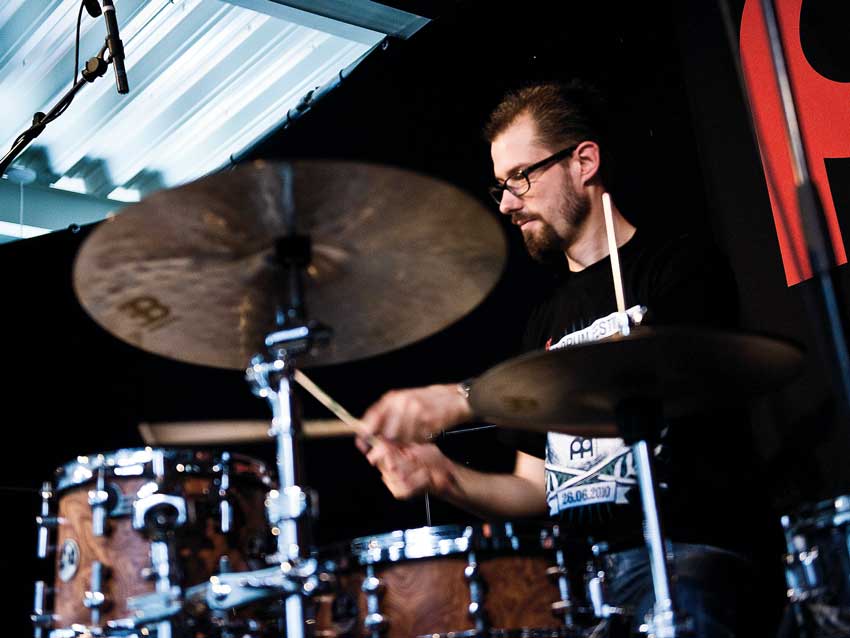
All In The Mind
“What do you think about, what do you focus on while you are playing, that will give you a certain feel? Again, it’s something you don’t have to practise for months. If you just think of something else it changes how you sound. And this is not hippie-ish bulls**t! You make a recording of yourself and then decide to think of something else and record that and it will sound different. It’s what many professional drummers do.”
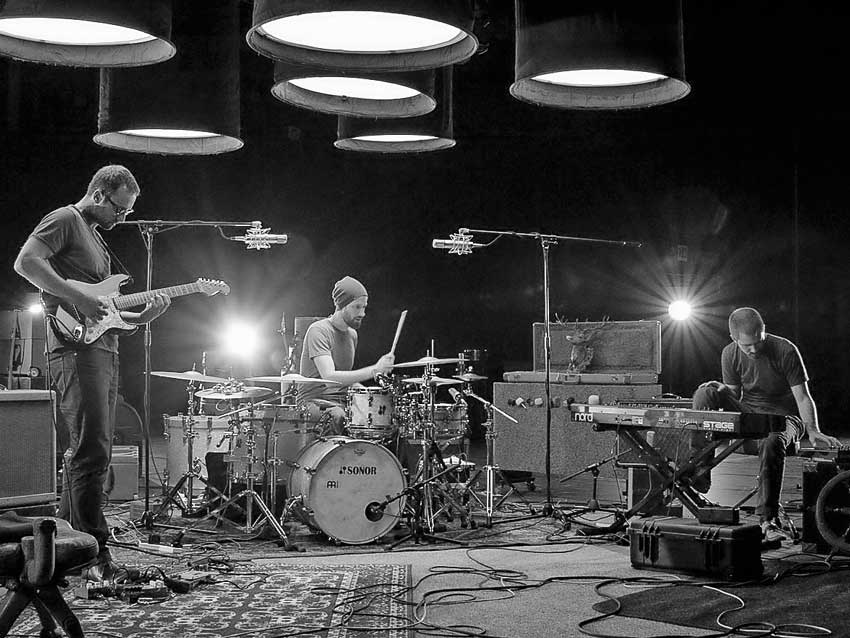
Staying focused
“Most drummers, when they play a groove, think about the fill they are about to play. Then the next four bars they think about how the fill could have been better, or how they messed up! The question is, who is playing the groove during that time? It’s not really you, it is muscle memory. It’s not you in charge of the alarm system or listening to the other instruments even.
"So if you want to apply all these things it takes you being in the moment. Having enough psychological bandwidth to be able really to listen to and play those grooves. Use all you can, mentally invested into the group you are playing with right now. For me personally I need everything I have to play a groove well and if I were to focus on something else I would also sound not so good. It’s not something that only beginners have to do. It is actually what people like Steve Jordan and Steve Gadd are doing when they play a nice groove.”
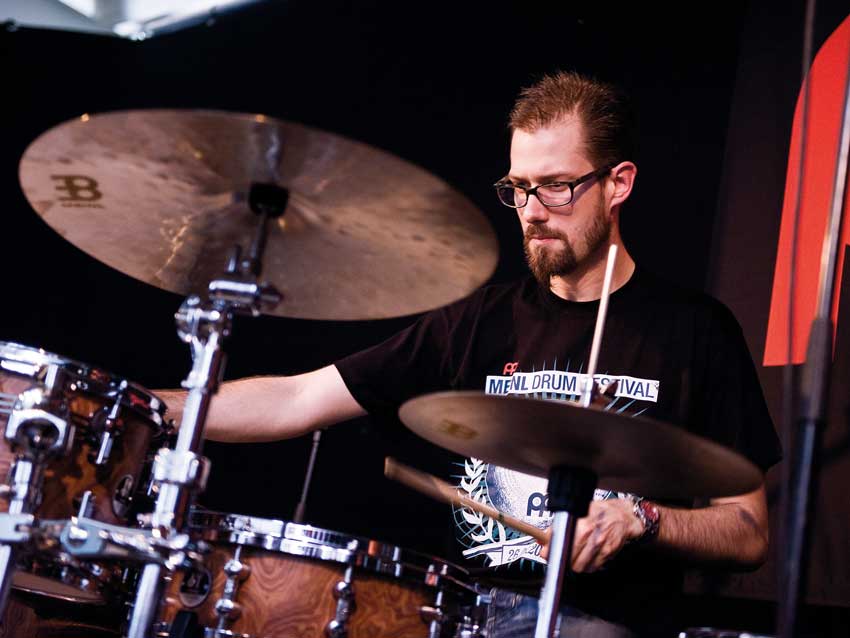
And stay focussed!
“You can sometimes dream away and still play something. We think it doesn’t matter so much because there is a lot our body can do on auto-pilot. But if you want to have something really impactful, so the group says, ‘Holy s**t’! then it usually takes being there and focusing on that.
“When you are focused and sound like it matters to you right now, the energy often translates to other people. People say [to me], ‘Wow, you are so present when you play.’ Sometimes people think rehearsals don’t matter, you don’t have to play as well as you can. People I play with will tell me that even in rehearsal it feels like I am performing. Because what we often do is rehearse and practise and then expect to have a better approach when you play live. That is an illusion because the body selects from what we do the most. It doesn’t decide to do 80 percent bulls**t and 20 percent good stuff! ‘Ah, that’s the good stuff, Okay, that is what we only will do now!’ It is really a habit and the more you practise being aware, focusing on the body and controlling the feel and the time… the more you are conscious of those things, the more they will become habits. And eventually they will just always be there, because that is what you do all the time when you practise and play. These qualities seep into your playing automatically."
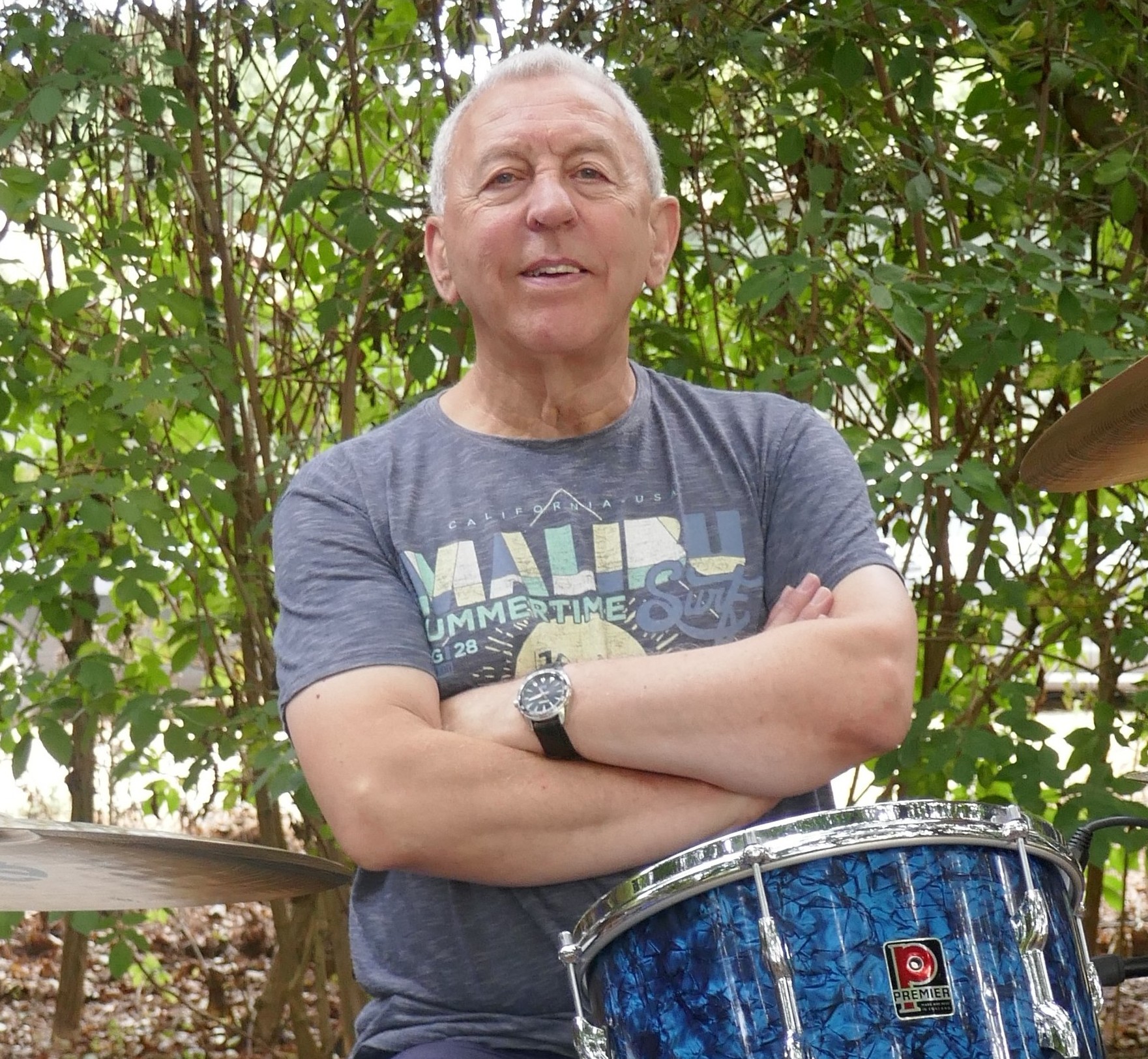
Geoff Nicholls is a musician, journalist, author and lecturer based in London. He co-wrote, co-presented and played drums on both series of ‘Rockschool’ for BBC2 in the 1980s. Before that he was a member of original bands signed by Decca, RCA, EMI and more. ‘Rockschool’ led to a parallel career writing articles for many publications, from the Guardian to Mojo, but most notably Rhythm magazine, for which he was the longest serving and most diverse contributor.